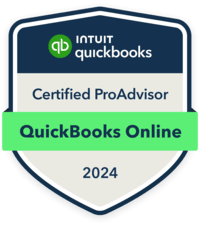November Question and Answer Corner
Newsletter issue - November 2009.
Q. I run a mixed arable and dairy farm in my own name, and my wife operates a holiday accommodation business from two of the farm cottages. The VATman has said that we should treat both businesses as one and charge VAT on the holiday lettings. He has also sent us a bill for past VAT due of £10,000. What should we do?
A. Holiday accommodation should be subject to VAT at the standard rate if the total turnover of the business is higher than the compulsory VAT threshold (currently £68,000). The VATman wants to combine the turnover of the farm, with your wife's holiday lettings business to reach this threshold. This can only be done if he can show that the two businesses are bound together on an economic, financial and organisational basis. Also the two businesses can only be treated as one business for VAT purposes from a current date, not some date in the past. You should appeal against the VAT bill of £10,000 and discuss with us how the businesses can be shown to be independent in the future. For instance the farm could charge the holiday business a small rent for the cottages used for letting.
Q. I am currently employed but I plan to start an internet-based business in my spare time, which will take about 18 months to break even. I will continue with my current job until the new internet business is making good profits. What is the best way to structure the new business so I can take full advantage of any losses it makes in the first two years?
A. If you run the new business in your own name as a sole trader, any losses made in its first four years will be available to set against your employment income. This applies as long as the Taxman does not see you as an 'inactive' trader, in which case the use of the losses against your other income will be restricted. To show the Taxman you are not an 'inactive' trader, you must spend an average of at least 10 hours per week on the new business, and make some record of the hours you work. You should also draw up a business plan to prove the business is run on a commercial basis with a view to making a profit in the future.
Q. About ten years ago I acquired all the various versions of the domain names relevant to the trading name used by my business. These domain names have always been held in my own name, although the business is now run through a company. I have just had an offer for the company and one of the domain names, which values the domain name at £3 million. How will the Taxman tax the profit on the sale of the domain name: as income profits or a capital gain?
A. If we assume the full £3 million represents the profit on the sale of the domain name, as the original purchase price was probably very small, the difference in the tax payable under an income or capital treatment will be approximately £660,000 (£3 million x 22%). This is because gains are currently taxed at 18%, and an income profit would be taxed at your highest personal income tax rate of 40%.
Your intention when acquiring the domain names was to protect the trading name of your business, not to sell on those domain names at a profit. You were holding the domain names as an investment, not as stock to be traded. The profit on the sale of the domain name should be treated just like the sale of any other investment; as a capital gain. Report the sale on the capital gains tax pages of your tax return, and provide as much information as possible about the original purchase cost and sale value in the blank space on those tax return pages. You may be able to claim entrepreneurs' relief on up to £1 million of the gain, if the sale of the domain name is associated with the sale of your company. The rules for this tax relief are complex, so please discuss the details of the deal with us first.






